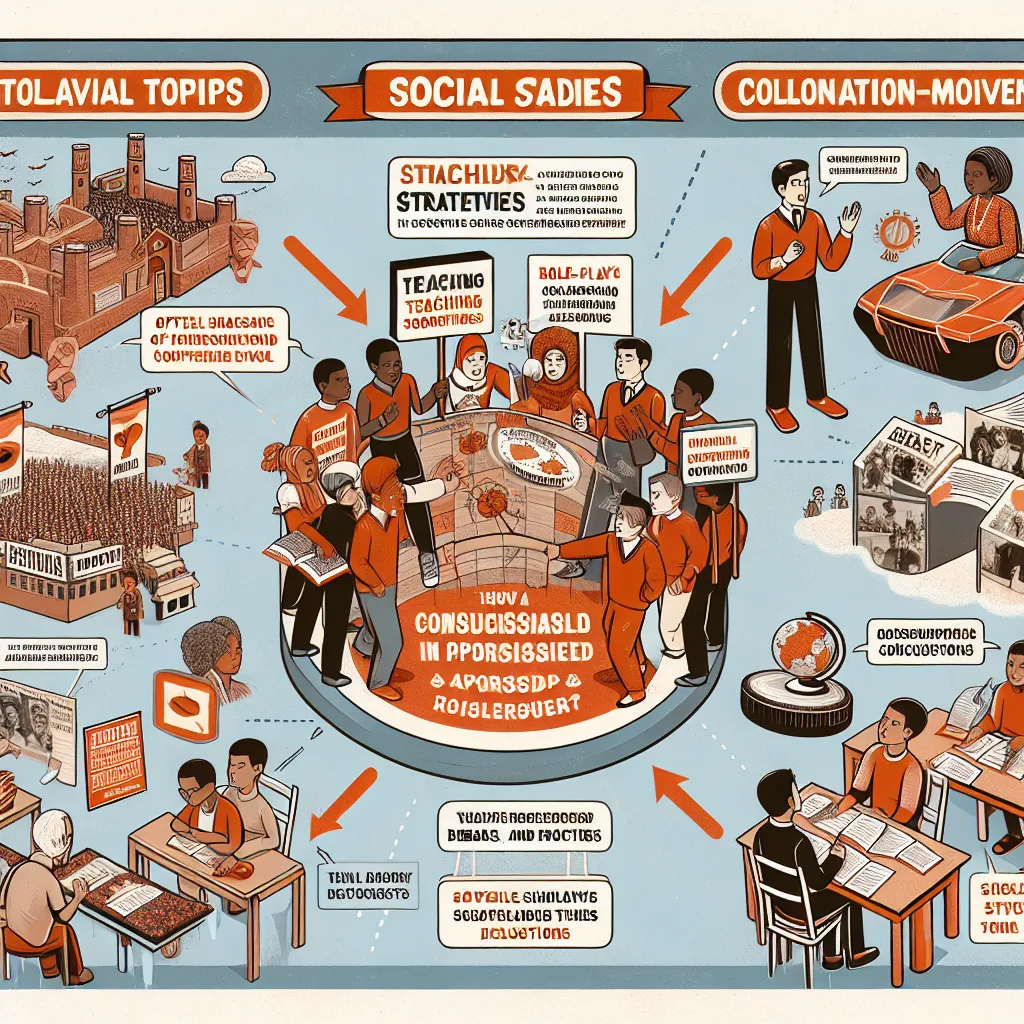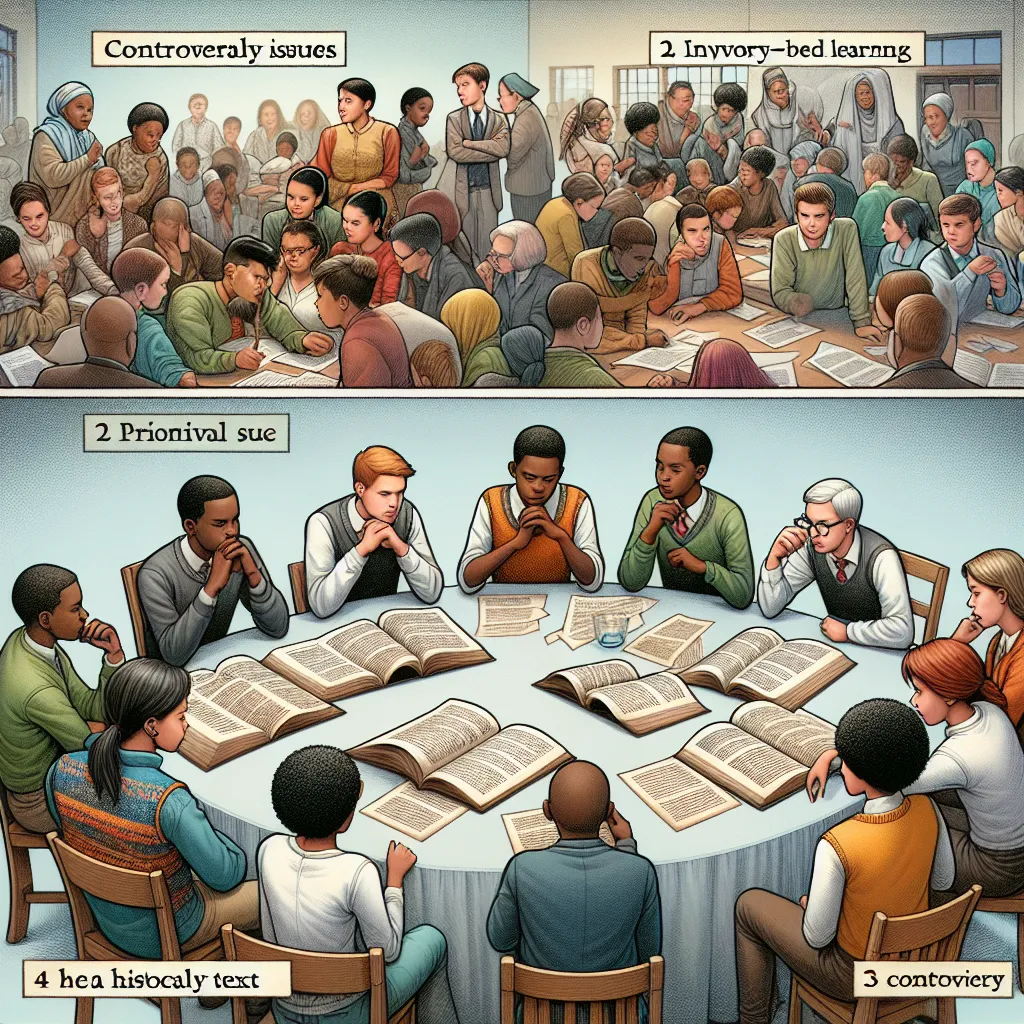Ask AI on The Internet
Question: Teaching Controversial Issues in SS history, challenges Include examples of controversial topics from CAPS. Please include in-text citations APA 7th referencing style and references
Teaching controversial issues in Social Studies (SS) history can be a challenging task due to the complex nature of the topics and the potential for strong emotional responses from students. Controversial issues often involve differing perspectives, cultural sensitivities, and political implications, making it essential for educators to handle these topics with care and objectivity. Below are some examples of controversial topics from the Curriculum and Assessment Policy Statement (CAPS) in South Africa, along with the challenges they present. ### Examples of Controversial Topics from CAPS: 1. **Apartheid and its Legacy:** - **Challenges:** Teaching about apartheid can evoke strong emotions and differing views among students, especially given the varying experiences and historical interpretations of this period. It is crucial to present a balanced view that acknowledges the suffering and resistance, as well as the ongoing impact on contemporary society. - **Reference:** Department of Basic Education. (2011). National Curriculum Statement (NCS) Curriculum and Assessment Policy Statement (CAPS) Social Sciences: Intermediate Phase Grades 4-6. Pretoria, South Africa: Department of Basic Education. 2. **Colonialism and Indigenous Peoples:** - **Challenges:** Addressing the impact of colonialism on indigenous populations requires sensitivity to the continuing effects of colonization, such as economic disparity and cultural erosion. Representing multiple perspectives and experiences is essential to ensure a nuanced understanding. - **Reference:** Department of Basic Education. (2011). National Curriculum Statement (NCS) Curriculum and Assessment Policy Statement (CAPS) Social Sciences: Senior Phase Grades 7-9. Pretoria, South Africa: Department of Basic Education. 3. **Land Redistribution:** - **Challenges:** Discussions around land redistribution often involve strong opinions related to property rights, historical injustices, and socio-economic disparities. Educators must facilitate respectful dialogue and consider the socio-political context to help students grasp the complexities of this issue. - **Reference:** Department of Basic Education. (2011). National Curriculum Statement (NCS) Curriculum and Assessment Policy Statement (CAPS) Social Sciences: Further Education and Training Phase Grades 10-12. Pretoria, South Africa: Department of Basic Education. ### In-Text Citations: When referring to these references in-text, you would cite them as follows: - The challenges of teaching about apartheid include handling varied emotional responses and presenting a balanced viewpoint (Department of Basic Education, 2011). - Addressing the impact of colonialism requires recognizing the lasting effects on indigenous communities (Department of Basic Education, 2011). - Discussions on land redistribution must consider socio-political contexts and historical injustices (Department of Basic Education, 2011). ### References: Department of Basic Education. (2011). *National Curriculum Statement (NCS) Curriculum and Assessment Policy Statement (CAPS) Social Sciences: Intermediate Phase Grades 4-6*. Pretoria, South Africa: Department of Basic Education. Department of Basic Education. (2011). *National Curriculum Statement (NCS) Curriculum and Assessment Policy Statement (CAPS) Social Sciences: Senior Phase Grades 7-9*. Pretoria, South Africa: Department of Basic Education. Department of Basic Education. (2011). *National Curriculum Statement (NCS) Curriculum and Assessment Policy Statement (CAPS) Social Sciences: Further Education and Training Phase Grades 10-12*. Pretoria, South Africa: Department of Basic Education. By incorporating these references, you can provide a well-rounded discussion of the controversial issues present in the CAPS curriculum and the challenges associated with teaching them in a Social Studies history context.
Think your answer is better than the AI's? Post it below.
Other Most Relevant Posts:
Question Tags
If you want your question answered by an AI, click here.







Post your own comment: